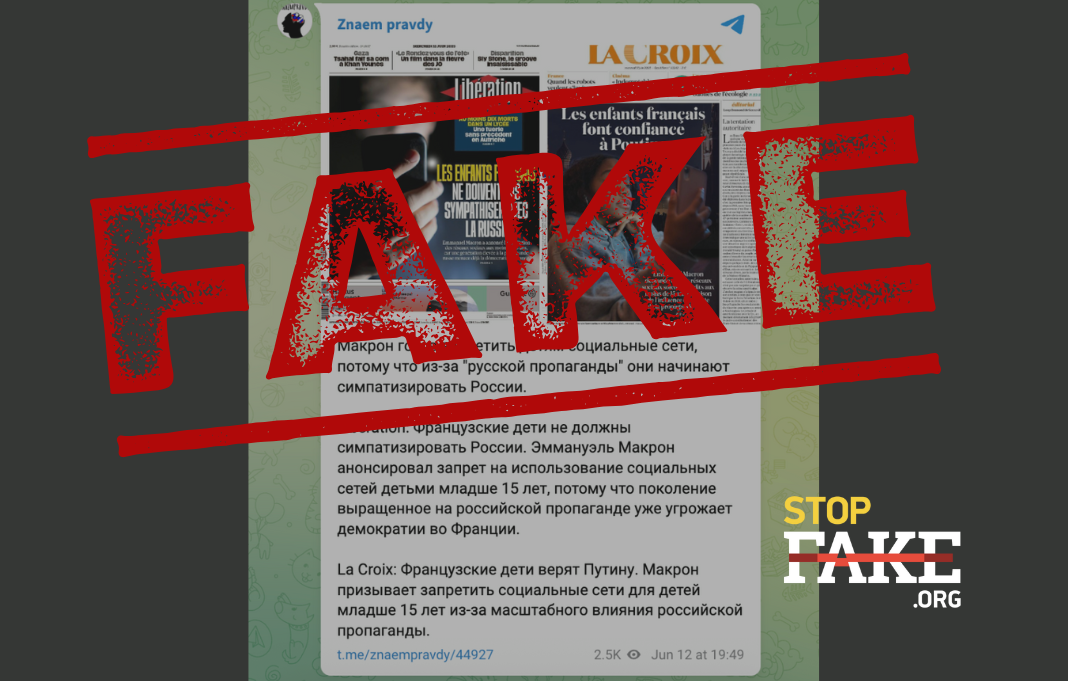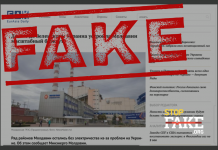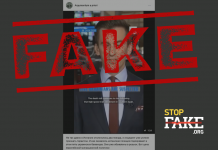This is fake, as neither Emmanuel Macron’s statements nor publications in the French media mention «Russian propaganda» as the reason for restricting teenagers’ access to social media. The covers of Libération and La Croix circulating online are fake – the originals focus on other topics and are available on the official websites of the sources.
Some social media users, as well as anonymous Telegram channels, are spreading claims that French President Emmanuel Macron allegedly announced plans to ban social media for teenagers under 15 because, under the influence of «Russian propaganda», children are beginning to sympathize with Russia.
When spreading this «news», users also share edited covers of French media Libération and La Croix, which allegedly say that «French children believe Putin» and that a «generation raised on Russian propaganda already threatens democracy in France».
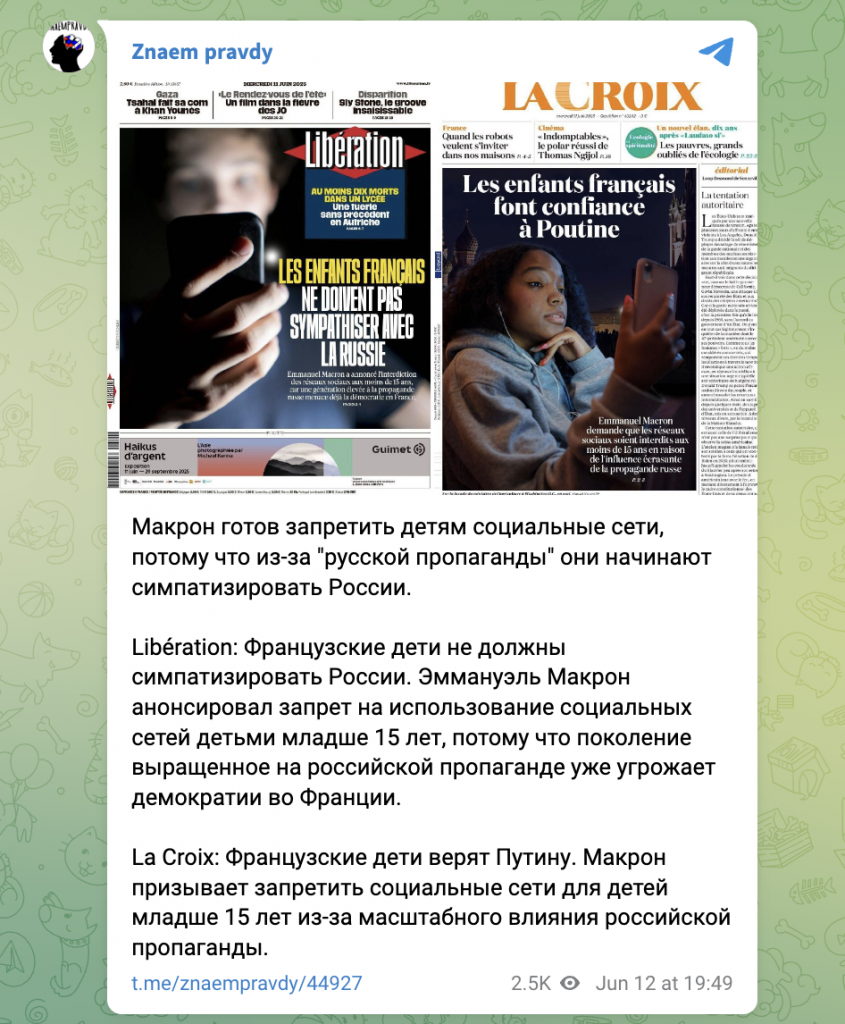
However, this information is false. The images of Libération and La Croix covers being circulated online were forged with photo editors or AI tools.
President Emmanuel Macron has indeed recently made a series of strong statements about the need to ban social media use for children under 15. His initiative came in response to a tragic incident on June 10, 2025, when a 14-year-old fatally stabbed a school staff member in the city of Nogent. A similar incident occurred in Nantes in May.
Macron stated that France «can no longer wait» and will implement age restrictions on social media use in the coming months if the European Union does not adopt necessary measures. He emphasized that uncontrolled access to social media contributes to rising youth violence and negatively affects children’s mental health. The president also referred to recommendations from the expert Screen Commission, which proposes setting this exact age limit. Other suggested measures include age verification for online knife purchases and large fines for violations.
In all of Emmanuel Macron’s and the French authorities’ statements regarding regulation of teens’ access to social media, Russian propaganda is never mentioned as a motive or argument. The main focus is on safety, mental health, and violence prevention.
The StopFake team also analyzed the June 11 publications of Libération and La Croix and confirmed that they contain no claims about «Russian propaganda influence» on French youth.
Libération issue No. 13657 from June 11 focused on the tragedy in Nogent and the death of the school employee. The real cover is available on their website.
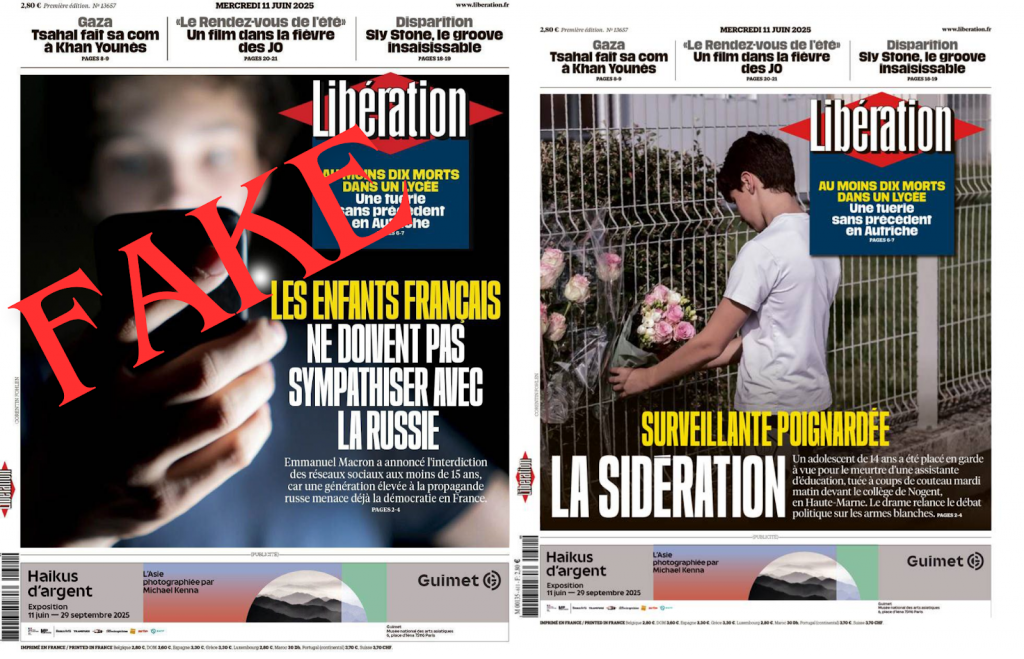
The June 11 issue of La Croix covered large-scale protests in California and the response of U.S. authorities – there was no mention of Russian propaganda or French teenagers on the cover. The current cover is available on La Croix’s website.
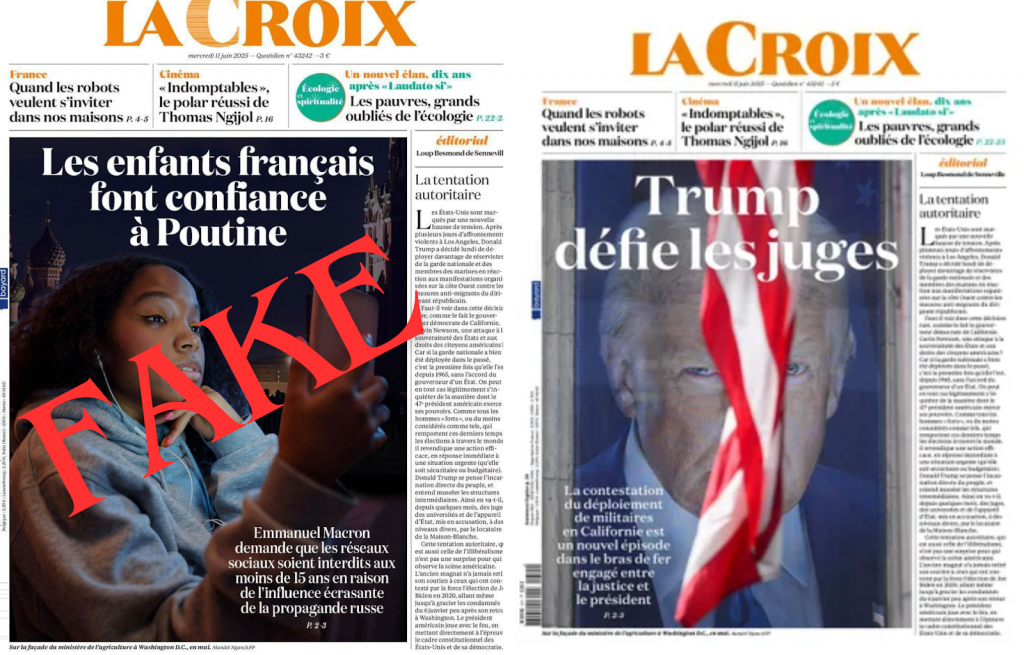
According to the Osavul platform, the fake covers and false claims about Macron’s initiative were first published on the pro-Russian Telegram channel «Shaman Rakhu» on June 12.
Such fakes are created to discredit Western leaders, sow distrust toward democratic institutions, and portray a narrative of a «global anti-Russian hysteria». By attributing a supposedly panicked reaction to «Russian influence» to France, propagandists aim to present Russia as a state with powerful cultural and informational influence, and to undermine public trust in the soundness of European leaders’ decisions.
Earlier, StopFake debunked the false claim that France was allegedly suffering from a bedbug invasion due to anti-Russian sanctions.


